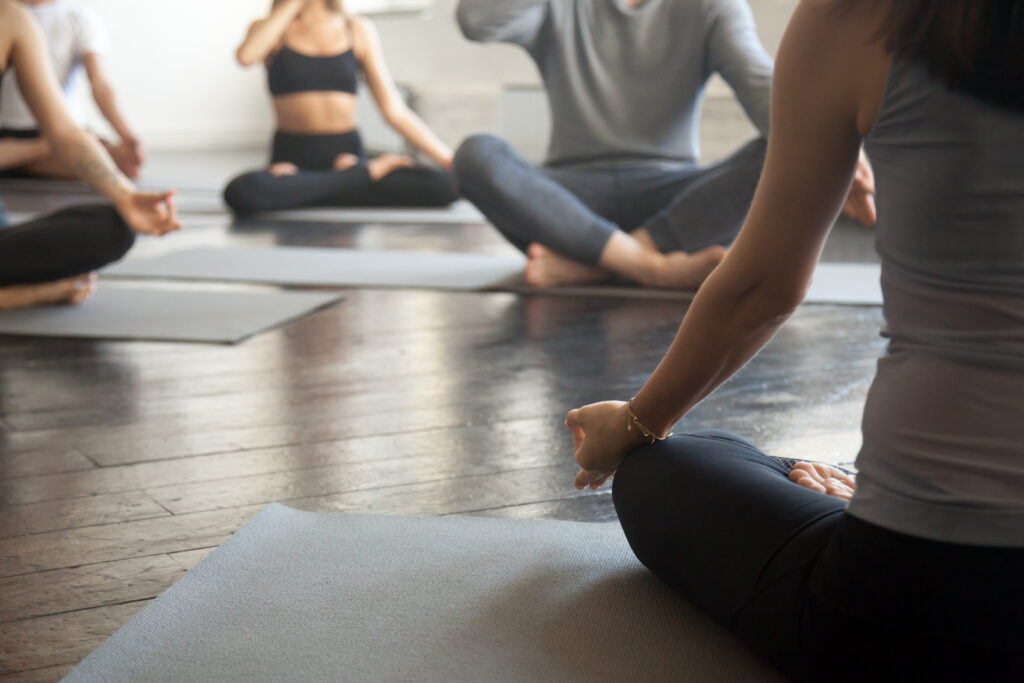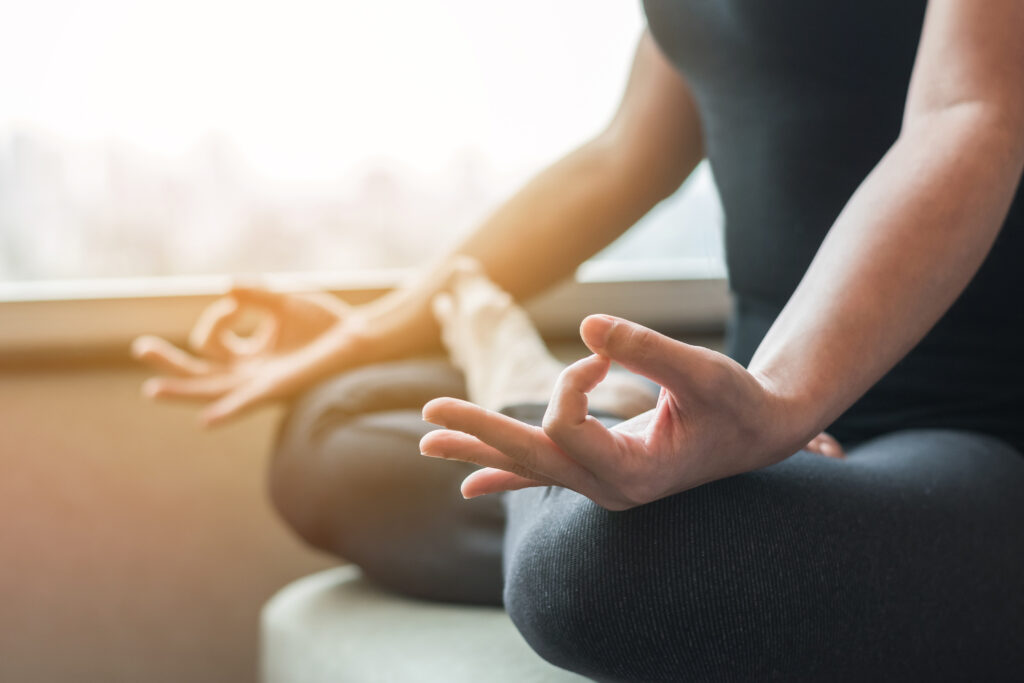5 Ways Yoga for Addiction Recovery Can Help

Getting over an addiction can take a lot, but yoga for addiction recovery promises may just be what you need. How does one even start the process of recovering from an addiction? Some say that submitting one’s self to therapy could help. But what therapy should you try?
With millions of people battling different types of addiction, various therapy programs are available to help. One of the most common and most accessible therapies to try is yoga. Experts say that the calmness in meditation helps clear the head and suppress the cravings for drugs. There are a number of yoga therapies that recovering addicts can try.
Mindfulness, meditation, and yoga, all can provide helpful tools to overcome addiction. Yoga is a combination of meditation and exercise. It helps clear the mind and you can practice what is considered as non-judgmental attention to the problem at the moment.
Related article: Can Yoga Help in Addiction Recovery?
Can Yoga Really Help in Addiction Recovery?
Although it may seem as if yoga is just about putting yourself in a particular position and keeping it that way for a few minutes, there’s more to it than meets the eye. Several studies show that moderate to high-intensity exercises, including mind and body exercises like yoga for addiction recovery help attain sobriety.
Such exercises also help reduce feelings of anxiety and depression. Both feelings are symptoms that often trigger a relapse for a recovering addict. HALT is an acronym that represents the four triggers of relapse: Hungry, Angry, Lonely, or Tired. Yoga involves both the mind and the body.
Yoga has been helpful to people who are recovering from their alcohol dependence and even to those who have a problem with their drug dependence. Meditation and yoga are helpful for those who are determined to quit smoking cigarettes as well.
Mindfulness programs including yoga help with substance abuse. In fact, some studies show that sitting meditations are more effective than the 12-step program and psychoeducation in lowering the risks of relapse. Mediation is done through yoga exercises that target the primary symptoms of substance abuse including impulsiveness, cravings, and negative reaction to stress.

How Yoga can Lead the Way to Recovery
How does yoga for addiction recovery do it? Here are the five ways yoga can help overcome addiction and prevent relapse, too:
Reduce anxiety and stress
Feelings of anxiety and stress often trigger substance abuse. Yoga for addiction recovery helps create the capacity to be aware of the stressful situation and observe a difficult situation. Doing yoga helps a person relax, reduce their feelings of stress and anxiety. With mindfulness, you will be able to better deal with your emotions and have enough room in you to sort them out. Yoga exercises help lessen the pressure you put on yourself.
Related article: Benefits of Yoga for Addiction Recovery and How to Get Started
Reduce cravings
Cravings to feel free from all the emotional and psychological baggage is another strong indicator of a possible relapse. Over time, mindfulness has been found to help reduce the cravings. Recovering addicts experience situations that trigger negative feelings that they find difficult to assess. Mindfulness puts a person in charge of his feelings as well as his cravings. The longer you practice mindfulness, the fewer cravings you’d feel. If you are trying to quit smoking, being mindful helps you crave less for it than those who don’t practice mindfulness at all.
Improve focus
Addiction makes people do things in patterns. Those recovering from addiction could better understand these patterns through mindful attention to details. When you are in control of your feelings and thoughts, you’ll be able to identify triggers to a possible relapse and substance use. Yoga and meditation help you focus on practices of self-reflection. It is the kind of awareness that does not require you to give a reaction. This means that you’d be able to notice the uncomfortable feelings without the urge to react to them or try to escape them.
Improve mood
Negative feelings often put a person in a negative mood. Sadly, a person who’s trying to recover from their addiction would often feel the need to avoid such negative feelings. It is not the negative feelings that push them back to their addiction. Rather, it is the desire not to feel these feelings that play a significant role in a possible relapse. Breathing exercises and various forms of yoga prove to help improve the mood people are in. When you find yourself in a much better mood, you won’t have to worry about slipping off your addiction recovery wagon.
Encourage positive outlook
Perhaps the most important part of mindfulness is that it is a practice that encourages a kind attitude to the self and towards others. It is the kind of mindset one needs as it promotes recovery and healing. Mindfulness practice in meditation and yoga helps you learn to accept the reality you are in without judgment or criticism.
A sound mind also keeps you from blaming yourself or anyone of your current situation. It gives you the ability to be compassionate and generous towards yourself. It will allow you to live at the moment without feeling the burden of the past or the pattern of mistakes you may have made. When you have a sound mind, the expectations and criticism of other people won’t matter that much.

Takeaway
So, can yoga for addiction recovery really help? Definitely. A lot of recovering addicts have found help in practicing yoga. There are mindful programs focused on those who want to quit smoking, among others. Perhaps what these programs are all aimed at doing is reminding the recovering addicts that there is hope. One day, they’d be able to overcome their addiction.
It is fairly easy to say that help is available. All that one needs to get started is to accept the help and everything else will fall into place. Whether it is yoga therapy you choose or another form of therapy, the goal is to get over the addiction. Focus on the goal and all will be well. You will find yourself in a better place, without the cravings and at no risk for relapse.
Contact Inspire Change Addiction Rehab in Vancouver today!
Related article: Can Exercise Help in Drug Addiction Recovery?


